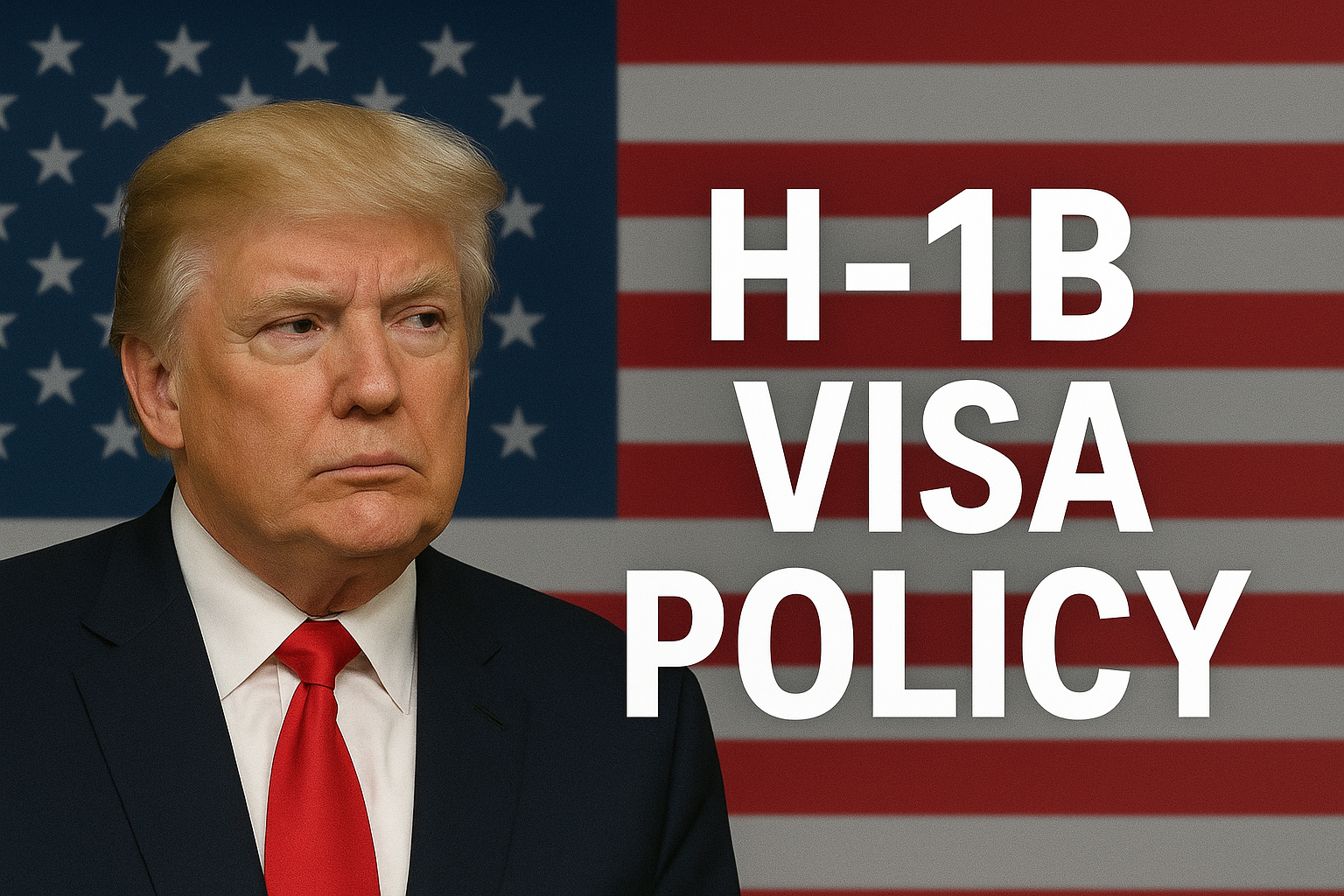The Trump H-1B visa policy has once again stirred debate in the global technology and business community. Recently, former U.S. President Donald Trump announced a sharp hike in the H-1B visa application fee to $100,000 (₹83–88 lakh approx.). For decades, Indian professionals and IT companies have relied heavily on H-1B visas to work on U.S. projects and strengthen bilateral trade. But this unprecedented increase has triggered concerns across the Indian IT sector, startups, and skilled professionals who aspire to work in America.
In this blog, we will break down the reasons behind the decision, its impact on India and the U.S., and the global consequences of this policy shift.
Why Did the Trump Administration Introduce the New H-1B Visa Policy?
The Trump H-1B visa policy is not just a financial move; it is also deeply rooted in political, economic, and social considerations. The administration outlined four major reasons:
1. Protecting American Jobs
The U.S. government argues that foreign workers on H-1B visas are often hired at lower wages, reducing job opportunities for American citizens. By raising visa costs, the administration hopes to discourage outsourcing and push companies to prioritize domestic talent.
2. Increasing Wage Standards
Another justification is to enforce the “prevailing wage rule” more strictly. This ensures that foreign workers are not hired at salaries below market standards, thereby reducing wage suppression.
3. National Interest Consideration
According to the Trump team, such a steep fee increase will act as a filter. Only highly essential applicants or companies working in critical industries will bear the cost. This, in theory, limits entry to only the most valuable professionals.
4. Revenue Generation
The visa fee hike is also expected to generate additional revenue for the U.S. government, which could be redirected to support local job creation and workforce development programs.
Impact on India
India is the single largest beneficiary of H-1B visas, with top IT service providers depending heavily on them. The Trump H-1B visa policy will directly hit Indian businesses and professionals in the following ways:
- Increased Project Costs – Giants like TCS, Infosys, Wipro, and HCL run multiple U.S. projects, but the additional financial burden will significantly inflate their operational expenses.
- Startups & SMEs in Trouble – Smaller IT firms and startups cannot afford to pay $100,000 per application, which may force them to cut back U.S. expansion plans.
- Shift in Talent Migration – Skilled Indian engineers may now prefer other destinations like Canada, Europe, or Asian markets, where visa processes are more affordable and welcoming.
- Pressure on Dollar Earnings – As IT revenue slows, India’s foreign exchange inflow from the U.S. will be adversely affected.
Impact on the U.S.
The Trump H-1B visa policy will also create ripple effects within the U.S. economy:
1. Increased Corporate Burden
Companies like Google, Microsoft, Amazon, JPMorgan, and Facebook employ thousands of H-1B professionals. A massive hike in visa fees will substantially raise operational costs, which may lead to hiring freezes or reduced project expansions.
2. Slower Innovation
The U.S. tech industry thrives on global talent. Restricting affordable access to foreign professionals could slow down innovation, research, and technological breakthroughs.
3. Political Advantage
The policy is also seen as a political strategy aimed at appealing to American voters under the slogan “Protect American Jobs.” This nationalistic stance may resonate with local communities but risks weakening America’s long-term dominance in the tech sector.
Global Economic Impact
The Trump H-1B visa policy is not just a bilateral issue between India and the U.S.; it has wider implications:
- For the U.S. – While short-term revenue gains are possible, long-term growth may suffer due to reduced access to global talent.
- For India – The IT industry’s revenue growth could slow down, directly affecting India’s GDP contribution from technology services.
- For the World – Countries like Canada, Germany, and the UK are likely to benefit, as skilled Indian professionals may shift to these regions in search of better opportunities.
The Trump H-1B visa policy may be temporary (currently announced for one year), but its effects will be long-lasting. Indian IT companies, professionals, and the U.S. tech industry are all bracing for major disruptions. For India, this is a wake-up call to diversify opportunities beyond the U.S. For America, it poses a risk of slowing innovation and reducing competitiveness.
As India and the U.S. engage in diplomatic discussions, one thing is certain: this policy marks a turning point in the way global talent migration and international business collaboration will shape the future.


One thought on “Why Trump’s H-1B Visa Policy Could Change the Future of Indian Tech in America”